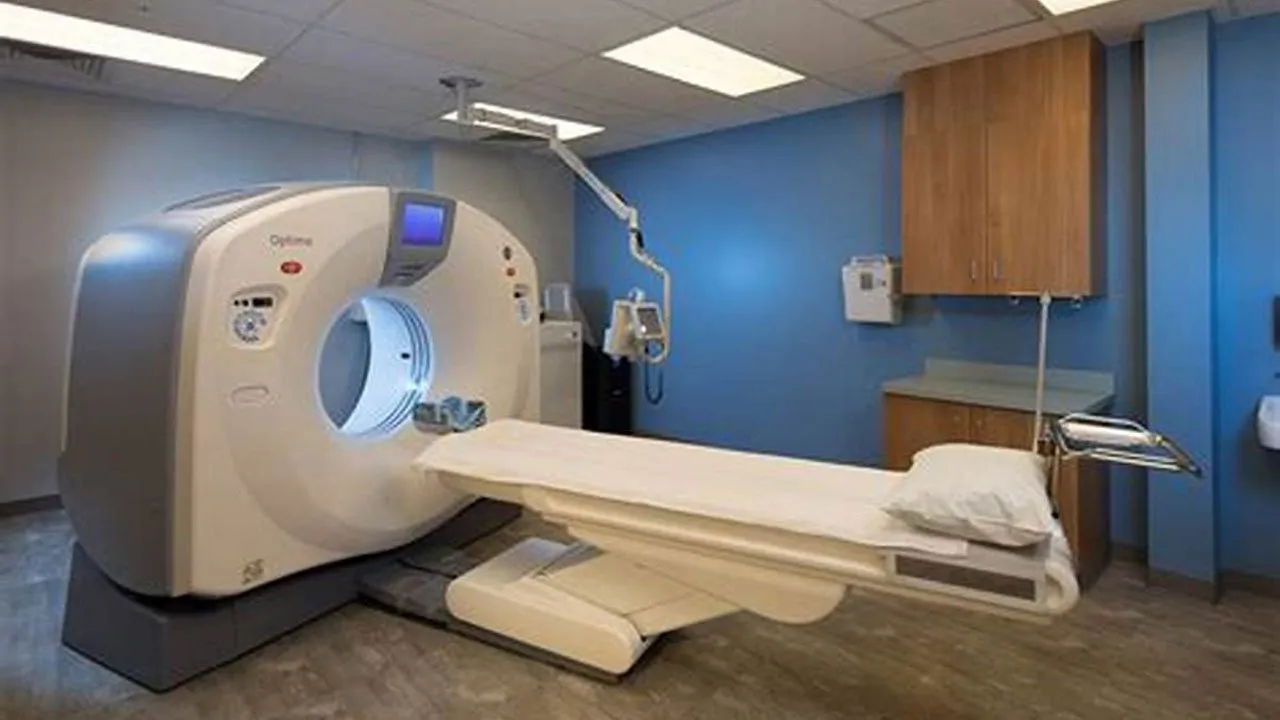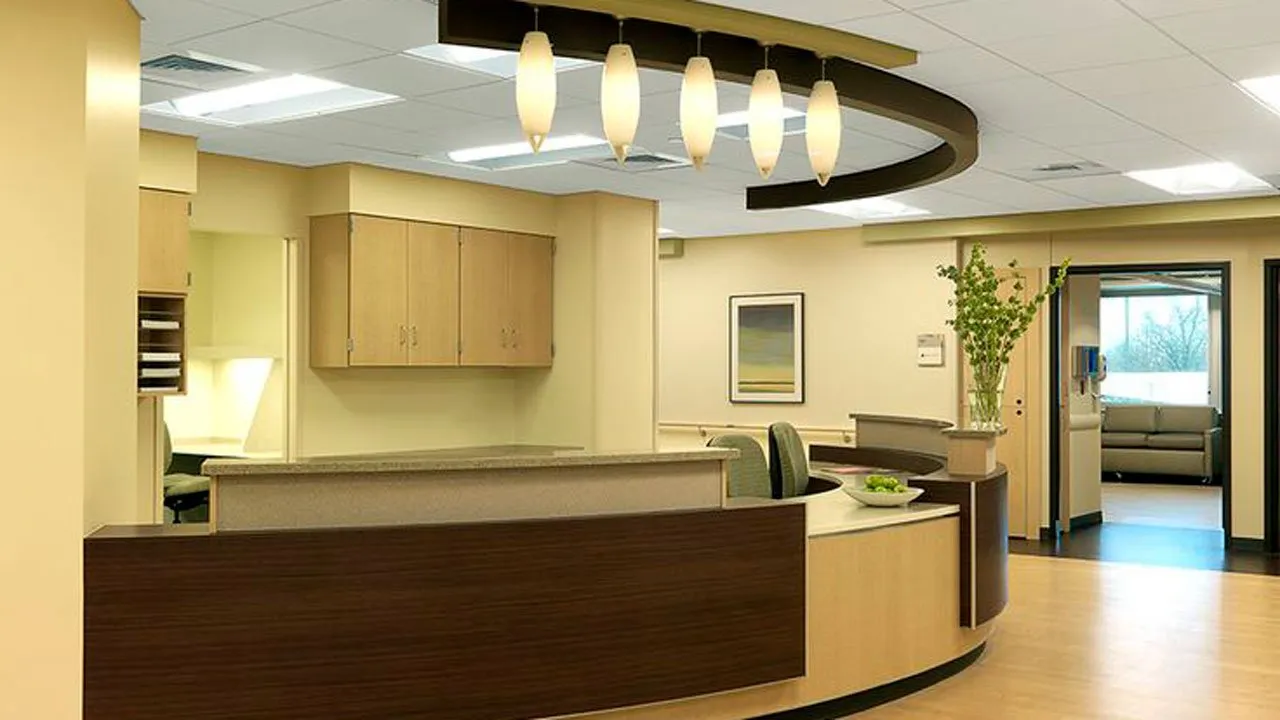Clinic, Healtcare facilities Architectural designs

A healthcare clinic is a medical facility or center where various healthcare services are provided to patients. Clinics can vary in size, focus, and services offered, but they all share the common goal of delivering medical care and treatment. Here are some key characteristics and types of healthcare clinics:
- Primary Care Clinic: These clinics are often the first point of contact for patients seeking general medical care. They provide services such as routine check-ups, vaccinations, minor illness treatment, and preventive care.
- Urgent Care Clinic: Urgent care clinics are designed to handle non-life-threatening medical issues that require immediate attention but are not severe enough to warrant a visit to the emergency room. They often have extended hours and can treat a wide range of conditions.
- Specialty Clinic: Specialty clinics focus on specific medical fields, such as cardiology, dermatology, orthopedics, or women’s health. They are staffed with specialists in these areas and provide more specialized care.
- Dental Clinic: Dental clinics offer services related to oral health, including dental check-ups, cleanings, fillings, extractions, and other dental treatments.
- Mental Health Clinic: Mental health clinics provide counseling, therapy, and psychiatric services for individuals dealing with mental health issues such as anxiety, depression, and other emotional or psychological conditions.
- Rehabilitation Clinic: Rehabilitation clinics offer physical therapy, occupational therapy, and other rehabilitative services to help patients recover from injuries, surgeries, or chronic conditions.
- Community Health Clinic: Community health clinics serve underserved or marginalized populations and provide a wide range of healthcare services, often on a sliding fee scale or at reduced cost. They focus on preventive care and health education.
- Veterinary Clinic: Veterinary clinics are healthcare facilities for animals, providing medical care and treatment for pets and livestock.
- Maternity Clinic: Maternity clinics offer prenatal care, childbirth services, and postnatal care for expectant mothers. They may also include services related to family planning and reproductive health.
- Wellness Clinic: Wellness clinics focus on holistic health and preventive care, offering services like nutrition counseling, fitness programs, and lifestyle management to promote overall well-being.
- Travel Clinic: Travel clinics specialize in providing vaccinations, advice, and medical information to individuals traveling abroad to help prevent travel-related diseases and illnesses.
- Sexual Health Clinic: Sexual health clinics provide services related to sexual and reproductive health, including screenings for sexually transmitted infections (STIs), contraception, and sexual health education.
- Pediatric Clinic: Pediatric clinics are dedicated to the medical care of children and infants, offering pediatricians and specialized care for young patients.
- Occupational Health Clinic: Occupational health clinics provide services related to workplace health and safety, including pre-employment physicals, injury management, and workplace wellness programs.
Healthcare clinics play a crucial role in the healthcare system by providing accessible and specialized care to patients. The specific services and specialties offered by a clinic will vary, and patients can choose the one that best suits their needs based on their medical condition and requirements.
It’s important to note that the specific services and capabilities of healthcare clinics can vary depending on the location and type of clinic. Patients should consult with their healthcare provider or check the clinic’s website to understand the services offered.
When should someone consider visiting a healthcare clinic instead of a hospital?
Someone should consider visiting a healthcare clinic instead of a hospital in the following situations:
Non-Emergency Medical Needs: If the medical condition is not life-threatening or requires immediate emergency care, a healthcare clinic can be a more appropriate choice. Clinics are well-suited for routine check-ups, minor illnesses, injuries, and chronic disease management.
Primary Care Services: Healthcare clinics serve as a primary point of contact for general medical care. If someone needs preventive care, vaccinations, screenings, or ongoing management of chronic conditions, a clinic can provide these services effectively.
Specialized Care: Some healthcare clinics specialize in specific areas of medicine, such as dermatology, cardiology, orthopedics, or women’s health. If someone requires specialized diagnostic tests, treatment, or consultations, a clinic with expertise in that particular field can be a better option.
Convenience and Accessibility: Healthcare clinics often offer extended hours, walk-in appointments, and shorter wait times compared to hospitals. If someone needs timely medical care and prefers convenience and accessibility, a clinic can be a more suitable choice.
Cost Considerations: In many cases, healthcare clinics can be more cost-effective than hospitals for non-emergency medical needs. Clinics generally have lower overhead costs, which can translate into more affordable healthcare services.
It’s important to note that the decision to visit a healthcare clinic or a hospital depends on the specific medical condition and the severity of the symptoms. If someone is experiencing a medical emergency or severe symptoms, it is crucial to seek immediate care at a hospital emergency department.
When are healthcare clinics a more suitable choice?
Healthcare clinics are a more suitable choice in the following situations:
Non-Emergency Medical Needs: If the medical condition is not life-threatening or requires immediate emergency care, a healthcare clinic can be a more appropriate choice. Clinics are well-suited for routine check-ups, minor illnesses, injuries, and chronic disease management.
Primary Care Services: Healthcare clinics serve as a primary point of contact for general medical care. If someone needs preventive care, vaccinations, screenings, or ongoing management of chronic conditions, a clinic can provide these services effectively.
Specialized Care: Some healthcare clinics specialize in specific areas of medicine, such as dermatology, cardiology, orthopedics, or women’s health. If someone requires specialized diagnostic tests, treatment, or consultations, a clinic with expertise in that particular field can be a better option.
Convenience and Accessibility: Healthcare clinics often offer extended hours, walk-in appointments, and shorter wait times compared to hospitals. If someone needs timely medical care and prefers convenience and accessibility, a clinic can be a more suitable choice.
Cost Considerations: In many cases, healthcare clinics can be more cost-effective than hospitals for non-emergency medical needs. Clinics generally have lower overhead costs, which can translate into more affordable healthcare services.
It’s important to note that the decision to visit a healthcare clinic or a hospital depends on the specific medical condition and the severity of the symptoms. If someone is experiencing a medical emergency or severe symptoms, it is crucial to seek immediate care at a hospital emergency department.
What services can healthcare clinics provide as primary care providers?
Healthcare clinics can provide a wide range of services as primary care providers. Some of the services commonly offered by healthcare clinics include:
Routine Check-ups: Healthcare clinics can perform regular check-ups to monitor overall health and detect any potential health issues. This may include measuring vital signs, conducting physical examinations, and reviewing medical history.
Preventive Care: Clinics focus on preventive care to help individuals maintain good health and prevent the onset of diseases. This may include vaccinations, screenings for various conditions (such as cancer, diabetes, and high blood pressure), and counseling on healthy lifestyle choices.
Diagnosis and Treatment of Common Illnesses: Healthcare clinics can diagnose and treat common illnesses such as colds, flu, allergies, infections, and minor injuries. They can prescribe medications, provide necessary treatments, and offer advice on managing symptoms.
Chronic Disease Management: Clinics play a crucial role in managing chronic conditions like diabetes, hypertension, asthma, and arthritis. They can provide ongoing care, monitor the condition, adjust medications, and offer lifestyle recommendations to help individuals effectively manage their health.
Health Education and Counseling: Healthcare clinics often provide health education and counseling services to promote wellness and address specific health concerns. This may include guidance on nutrition, exercise, stress management, smoking cessation, and mental health support.
Referrals to Specialists: If a patient requires specialized care beyond the scope of a primary care clinic, healthcare providers can refer them to appropriate specialists for further evaluation and treatment.
It’s important to note that the specific services offered may vary depending on the clinic’s resources, expertise, and location. It’s recommended to contact the specific healthcare clinic or primary care provider to inquire about the services they offer.
Sources:
American Academy of Family Physicians: https://www.aafp.org/home.html
Mayo Clinic: https://www.mayoclinic.org




 3D Fashion Model
3D Fashion Model
 Fashion Model
Fashion Model







